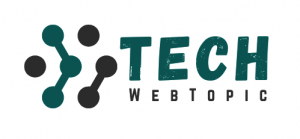The role of AI, or artificial intelligence, in today’s world is undeniably, utterly significant. Organizations mine data from diverse sources to make smarter decisions. Certainly, it’s not always ready to use, as there are duplicates, missing fields, outdated information, and inconsistencies. This is the very point they need data cleansing services. Otherwise, making smart, precise, reliable, and actionable decisions is not possible. Fortunately, artificial intelligence has evolved, supporting data cleansing companies with its automated models that ensure accuracy and precision.
Let’s start with the significant rise in demand for these services.
The Rising Demand for Data Cleansing
As data floods in from the Internet of Things, enterprises face the challenge of maintaining clean and accurate databases. The volume of data is scaling exponentially, with IDC reporting that the global datasphere will exceed 175 zettabytes by 2025. However, errors persist, with 27% of data being flawed or inaccurate, according to Experian’s 2024 Global Data Management Research. This highlights the importance of improving enterprise data accuracy to reduce wasted resources, money, and time affecting marketing, sales, and operations.
Out of them, financial loss is significantly disrupting companies’ growth & scalability. Considering another report from Gartner, it states that quality costs an average of $12.9 million every year to businesses. They suffer operational inefficiencies and missed opportunities (Gartner, The State of Data Quality 2023). These concerns incline organisations towards AI-enabled data cleansing solutions, which indeed add a competitive edge.
How AI Transforms Data Cleansing
Traditionally, database scrubbing services were human-only processes. Human teams compare and clean records, update dupes, and flag errors. This method is lengthy and does not ensure error-free data. Now, AI has shown a silver lining, as it can help in navigating challenges by automating data standardization and cleansing, detecting and correcting inaccuracies efficiently. Here is how it supports:
1. Intelligent Deduplication and Matching
AI models or algorithms can detect subtle duplicates in seconds that may be missed manually. For example, it takes a few seconds to analyse whether John A Smith and J. Smith represent the same person, who might be written differently in two databases. In fact, AI models have natural language processing and fuzzy matching in support, which recognise this type of similarity or dissimilarity with precision.
2. Automated Error Detection
Traditionally, errors were detected according to predefined rules. Now, machine learning models are following no guidelines but historical correction patterns that they detect automatically. This method of error detection helps in finding anomalies, such as impossible ZIP codes, invalid phone formats, or outdated email domains. Once found, it flags and fixes them after reviewing. It significantly speeds up cleansing processes, no matter how massive the volume is.
3. Real‑Time Data Validation
Modern AI systems are indeed advanced and can be directly integrated into customer relationship management (CRM) and enterprise resource planning (ERP) platforms. Thereafter, whenever new data enters the system, the AI algorithm instantly validates it against internal and external references.
With dedicated database cleansing services that involve AI also, every new entry to the CRM can be identified and cleaned in real time. This initiative filters out dirty data at the point of entry.
4. Predictive Data Enrichment
Going beyond cleaning, AI can automatically predict data to fill in the missing fields. Let’s consider a case of missing email IDs in a CRM database. AI tools can match it with external sources to find a suitable match. If you consider a Salesforce report (The Data Imperative 2024), it clearly shows that AI-powered enrichment improves marketing response rates by 32%. It helps them personalize their outreach more effectively.
Why Businesses Prefer AI‑Driven Data Cleansing Services
Certainly, multiple reasons and benefits are behind preferring AI-driven data cleansing services. Here they are:
- Cost Reduction: Employing AI reduces labour costs automatically, which allows businesses to reallocate staff to their core and higher-value activities.
- Faster Turnaround: The speed of AI to process data is way faster than human teams. A leading research firm found that AI automation reduces time to prepare data up to 70% (TDWI, AI in Data Management 2024).
- Scalability: This advanced technology can easily contribute to meeting scaling requirements, which can soar from 10,000 records or 10 million during peak season. AI-powered platforms effortlessly enable it.
- Compliance and Risk Management: Various data compliance regulations like CCPA and GDPR favour clean data, which simplifies monitoring and auditing to safeguard its sensitivity.
Real‑World Examples
Leading data cleaning companies fall for AI technologies, especially for maintaining data hygiene to deliver superior results. For example, firms like Trifacta and Talend have embraced AI for cleaning data automatically. And now finding anomalies and recommending errors through visual reports is like a walkover. Likewise, many multinational companies are outsourcing their needs via database cleansing services to those who specialise in this process. The substantial benefit is that these professional companies introduce AI also to ensure data hygiene.
Considering the case of e-commerce, AI-driven processes enable marketplace owners to relentlessly maintain accuracy in their catalogues. This is simply because they are aware of the cost of a small mistake leading to the loss of millions of dollars. Apart from this, they lose multiple sales opportunities. This is why adapting to faster and smarter technologies is a must.
The Future of Data Cleansing with AI
Foreseeing the future, AI models are likely to be more sophisticated in the future. It will simplify things that interfere with smooth cleansing processes. The impressive fact associated with it is that the generative AI tools are likely to replace human counterparts because their algorithms learn by themselves how to improve models. The only concern is the enclosed need for enterprise-grade cloud-based platforms to hold small to large sizes of data. This alternative requires a huge upfront investment.
In this context, a report from Forrester (The Future of Data Management 2024) foresees that over 80% of data management tasks will be automated via AI and machine learning by 2027.
Conclusion
Artificial intelligence has stormed into every domain, which includes the service sector. And data cleansing services are no exception to it. The most appeasing thing associated with it is that it automates processes like error detection, deduplication, validation, and enrichment. Unfortunately, it requires a fortune to set up or deploy cloud platforms for data storage and host resources for AI integration. But many data cleansing outsourcing companies are emerging as a silver lining, offering faster, smarter, and more reliable insights.


